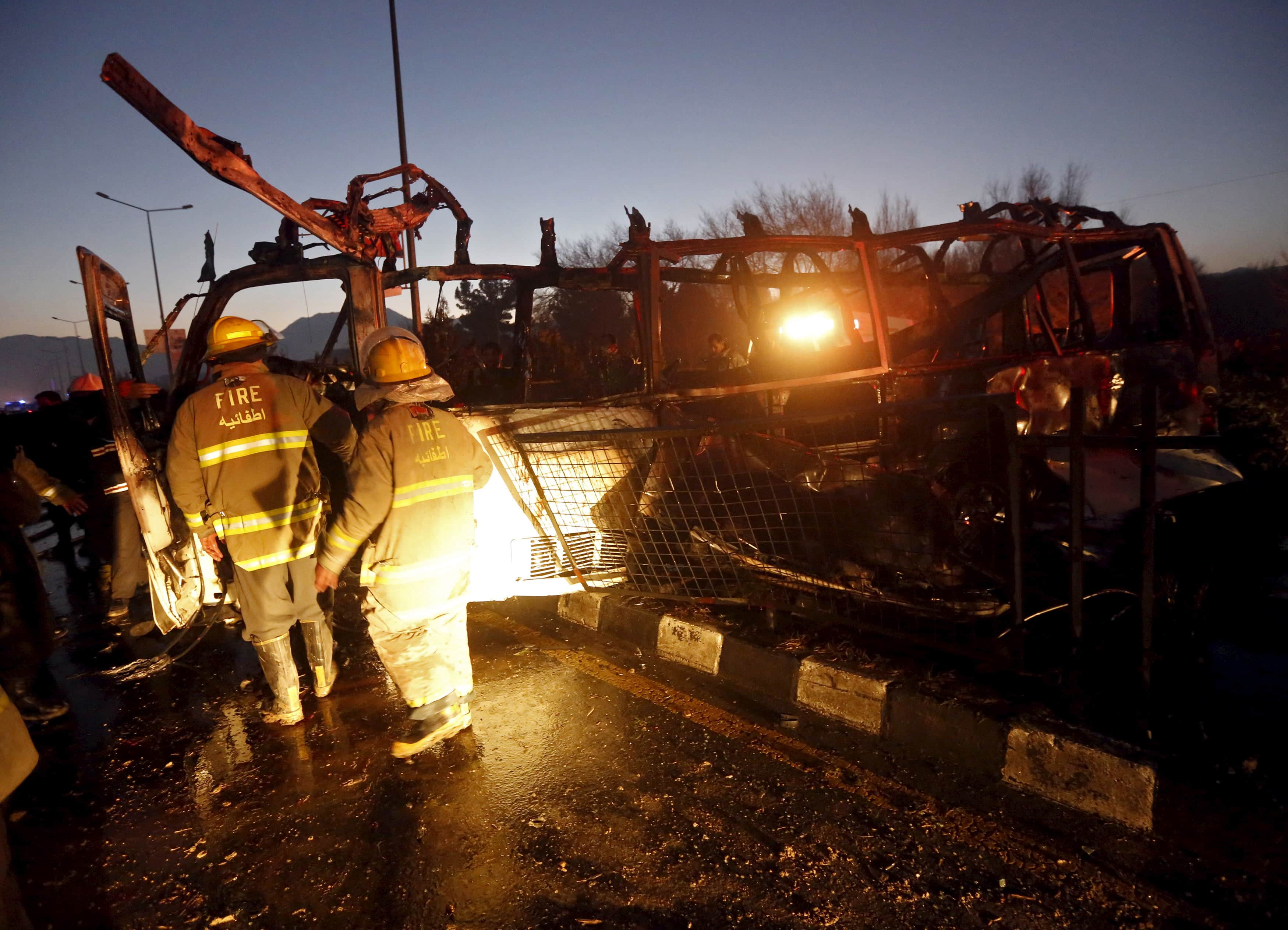From lethal attacks on the media in Afghanistan and Pakistan, to the case of the missing Hong Kong publishers, to a campaign to block government interference with Australia's national broadcaster, we present a month of events that are changing the free expression landscape in the region.
Trending: Journalists killed in Afghanistan and Pakistan; missing publishers in Hong Kong still a mystery
Journalists were killed in terrorist attacks in Afghanistan and Pakistan in separate incidents that took place in January 2016, heightening concerns over the continued targeting of media personnel.
On 20 January, seven staff members of the Afghan Tolo TV were killed following a Taliban suicide attack in Kabul on a minibus that was transporting the station’s journalists. Thirty others were also injured in the attack. International organisations issued a message of solidarity with the Afghan media. The International Federation of Journalists (IFJ) tweeted this:
#Afghanistan: IFJ condemns killing of seven #media workers in suicide bombing https://t.co/fPsezkYFxE @abellanger49 pic.twitter.com/IZxOxjYDBP
— IFJ (@IFJGlobal) January 20, 2016
The South China Morning Post is monitoring the issue and has created a special page to compile updates and maintain a timeline of the incidents.
Digital rights
Several individuals were convicted for online expression, specifically for postings on the social networking platform, Facebook, that were deemed in breach of national security or defamatory by the respective governments and courts.
In Thailand, a 46-year old ex-stockbroker was sentenced to six years in jail for two Facebook posts about the king that were cited as having breached the country’s controversial lèse majesté law, according to the Bangkok Post. As of December 2015, prosecutions under the insult law topped 60 since a coup was launched in mid-2014, and the military regime has attempted to get the compliance of online companies Facebook and Youtube to ban any content said to be defamatory to the monarchy.
In Burma, activist Patrick Khum Jaa Lee was sentenced to six months in prison for posting on his Facebook page comments about the country’s army chief. Critics and his family say there is no digital evidence to prove the crime, and that the charge under the Telecommunications Law threatens freedom of expression.
On a more positive note for digital rights, Bytes for All in Pakistan has created a series of cartoons on the importance of encryption to protect one’s privacy online as well as to ensure individuals are able to express themselves freely. As they say, “We believe the best way to respond to the attempts to put curbs on encryption is for everyone to learn about it and actively use it.”
Members calling for action
The Media, Entertainment & Arts Alliance has come together with the Community and Public Sector Union to launch a campaign to restore adequate funds for Australia‘s national broadcaster – the Australian Broadcasting Corporation (ABC) – and to end government interference in the station’s editorial and programming. More details on the Hands Off Our ABC campaign are on MEAA’s website.
Key Regional Reports
Several groups painted a bleak picture for 2015 in terms of impunity in Asia, reflected in reports by the Pakistan Press Foundation and the Freedom Forum in Nepal. Other forms of attack against the media in Indonesia were recorded by Aliansi Jurnalis Independen, while the Thai Journalists Association reported that, in 2015, the atmosphere in Thailand was one of paranoia, and marked by control by the military regime. Amendments to the constitution in progress have worried activists and critics of the regime. Journalist Pravit Rojanaphruk, who was detained twice by the junta, tweeted on the targeting of students who challenge the regime:
Abduction of anti-junta student activist shows how fragile & lawless Thailand has become. #Thailand
— Pravit Rojanaphruk (@PravitR) January 20, 2016

